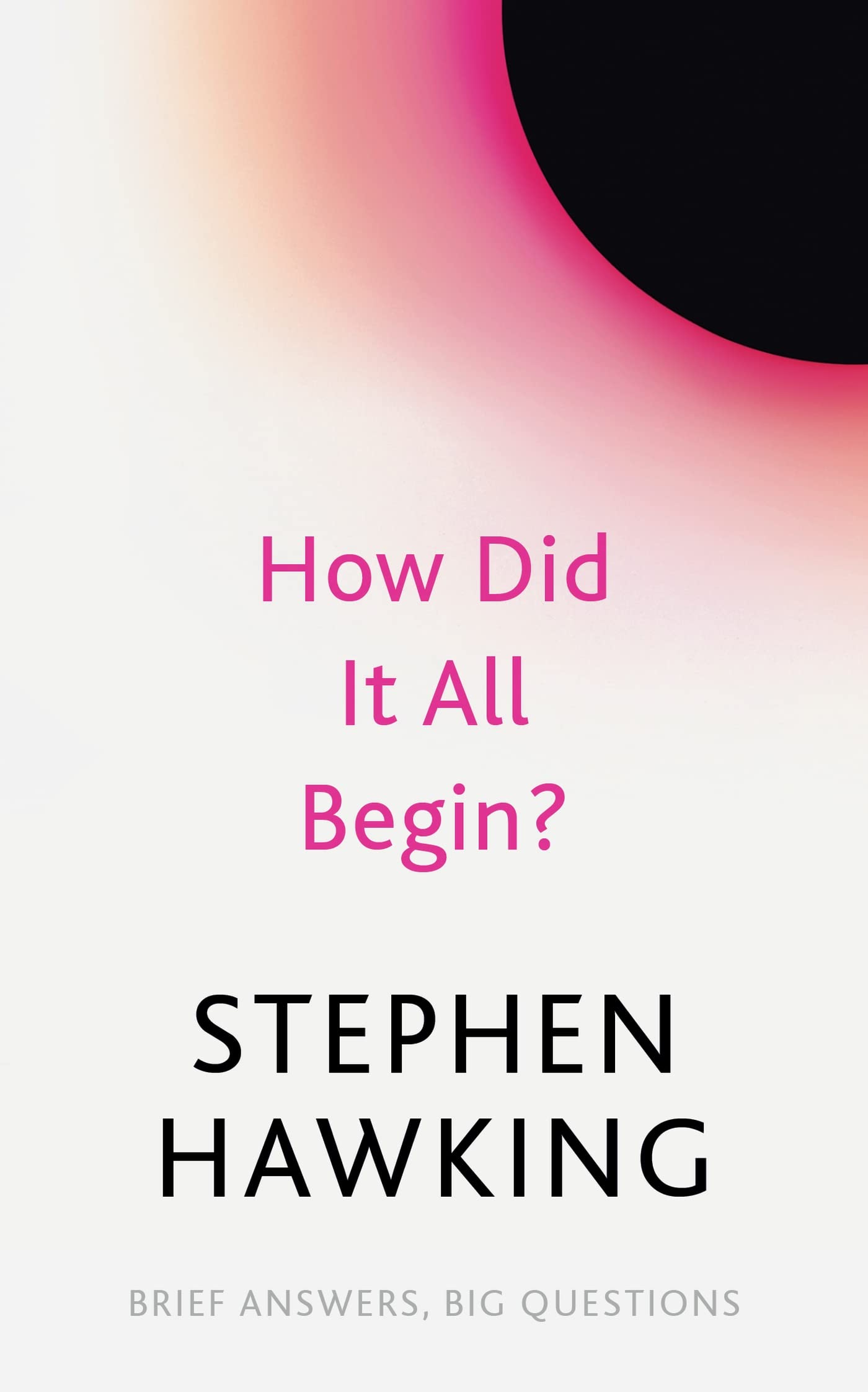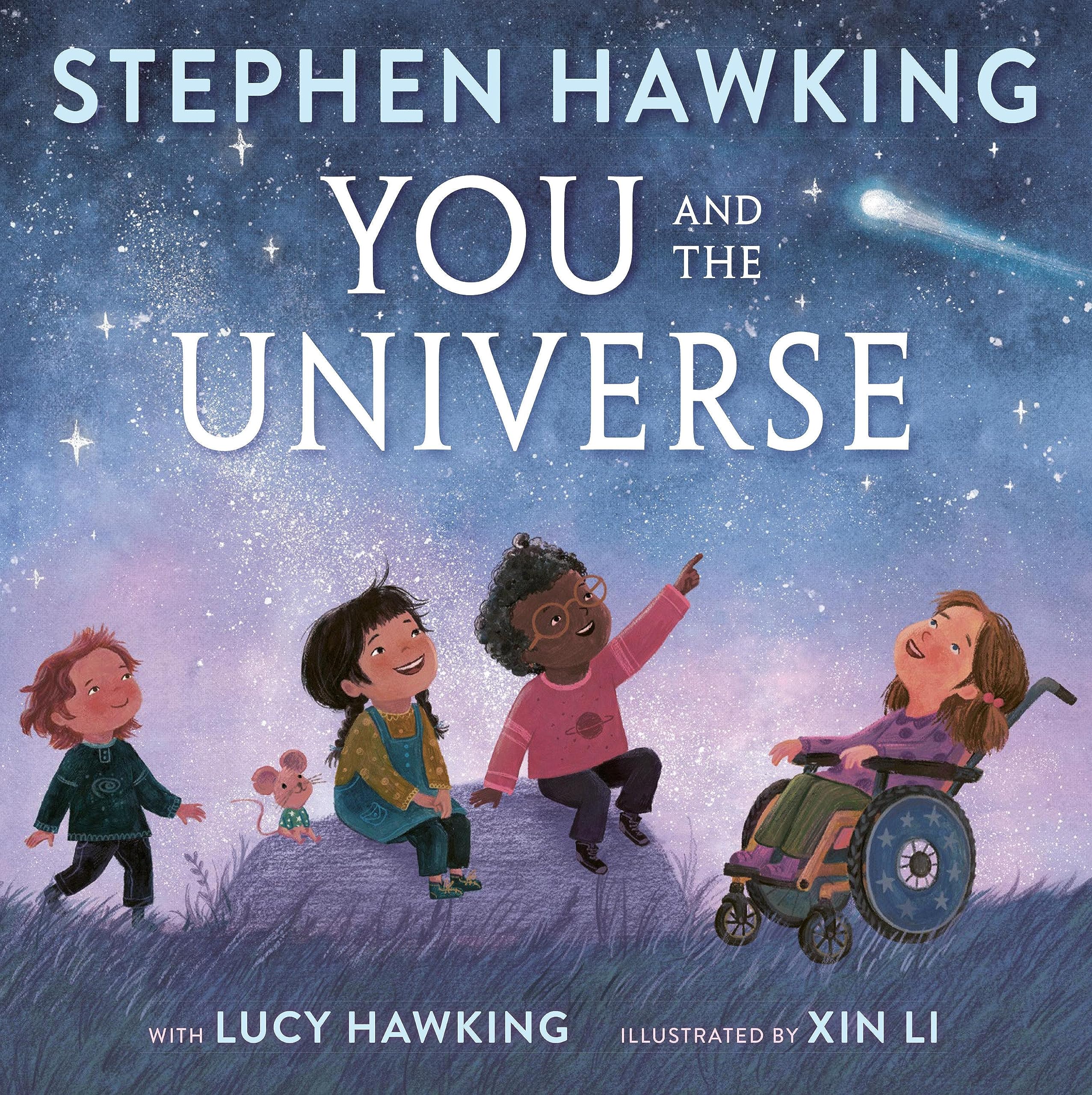
Stephen William Hawking was born on 8 January 1942 in Oxford, England. His parents' house was in north London, but during the second world war Oxford was considered a safer place to have babies. When he was eight, his family moved to St Albans, a town about 20 miles north of London. At eleven Stephen went to St Albans School, and then on to University College, Oxford, his father's old college. Stephen wanted to do Mathematics, although his father would have preferred medicine. Mathematics was not available at University College, so he did Physics instead. After three years and not very much work he was awarded a first class honours degree in Natural Science. Stephen then went on to Cambridge to do research in Cosmology, there being no-one working in that area in Oxford at the time. His supervisor was Denis Sciama, although he had hoped to get Fred Hoyle who was working in Cambridge. After gaining his Ph.D. he became first a Research Fellow, and later on a Professorial Fellow at Gonville and Caius College. After leaving the Institute of Astronomy in 1973 Stephen came to the Department of Applied Mathematics and Theoretical Physics, and since 1979 has held the post of Lucasian Professor of Mathematics. The chair was founded in 1663 with money left in the will of the Reverend Henry Lucas, who had been the Member of Parliament for the University. It was first held by Isaac Barrow, and then in 1669 by Isaac Newton. Stephen Hawking worked on the basic laws which govern the universe. With Roger Penrose he showed that Einstein's General Theory of Relativity implied space and time would have a beginning in the Big Bang and an end in black holes. These results indicated it was necessary to unify General Relativity with Quantum Theory, the other great Scientific development of the first half of the 20th Century. One consequence of such a unification that he discovered was that black holes should not be completely black, but should emit radiation and eventually evaporate and disappear. Another conjecture is that the universe has no edge or boundary in imaginary time. This would imply that the way the universe began was completely determined by the laws of science. His many publications include The Large Scale Structure of Spacetime with G.F.R. Ellis, General Relativity: An Einstein Centenary Survey, with W. Israel, and 300 Years of Gravity, with W. Israel. Stephen Hawking has three popular books published; his best seller A Brief History of Time, Black Holes and Baby Universes and Other Essays and most recently in 2001, The Universe in a Nutshell. Professor Hawking received twelve honorary degrees, was awarded the CBE in 1982, and was made a Companion of Honour in 1989. He was the recipient of many awards, medals and prizes and is a Fellow of The Royal Society and a Member of the US National Academy of Sciences.
Books

Three Hundred Years of Gravitation
1987

Stephen Hawking
Life Works
1994

Brief Answers to the Big Questions
2018

Is the End in Sight for Theoretical Physics
An Inaugural Lecture
1980

Вселенная Стивена Хокинга. Три книги о пространстве и времени
2012

Black Holes
The Reith Lectures
2016

The Dreams That Stuff Is Made Of
The Most Astounding Papers of Quantum Physics--and How They Shook the Scientific World
2011

Theories of the Universe
1996

UNLOCKING THE UNIVERSE
2020

The Cambridge Lectures
The Famed Series of Lectures on the Theory of Everything
1987

A Briefer History of Time
2005

Penguin Readers Level 5
Unlocking the Universe
2021

A Brief History of Time
1988

A Stubbornly Persistent Illusion
The Essential Scientific Works of Albert Einstein
2007

The Theory of Everything
The Origin and Fate of the Universe
2002

Will Artificial Intelligence Outsmart Us?
2022

How Did It All Begin?
2022

You and the Universe
2024

Hawking on the Big Bang and Black Holes
1993

Stephen Hawking's
A Reader's Companion
1991

Will We Survive on Earth?
2022

Aforizmalar
2018

Solving the Mysteries of the Universe
2013

The Future of Spacetime
2002

Great Science Writers of the Decade
1995

The Large Scale Structure of Space-Time
1973

Universe in a Nutshell/Illustrated Brief History of Time
1988

The Nature of Space and Time
1996

Stephen Hawking
The Playboy Interview
2012

Black Holes and Baby Universes and Other Essays
1993

My Brief History (Deckle Edge) Hardcover
2013

What Is Inside a Black Hole?
2022

God Created the Integers
The Mathematical Breakthroughs That Changed History
2005

The Grand Design
2010

The Universe in a Nutshell
2001

On the Shoulders of Giants
2002

Ullmann's Encyclopedia of Industrial Chemistry
Index to Volumes A1 to A21, B1 to B4
1991